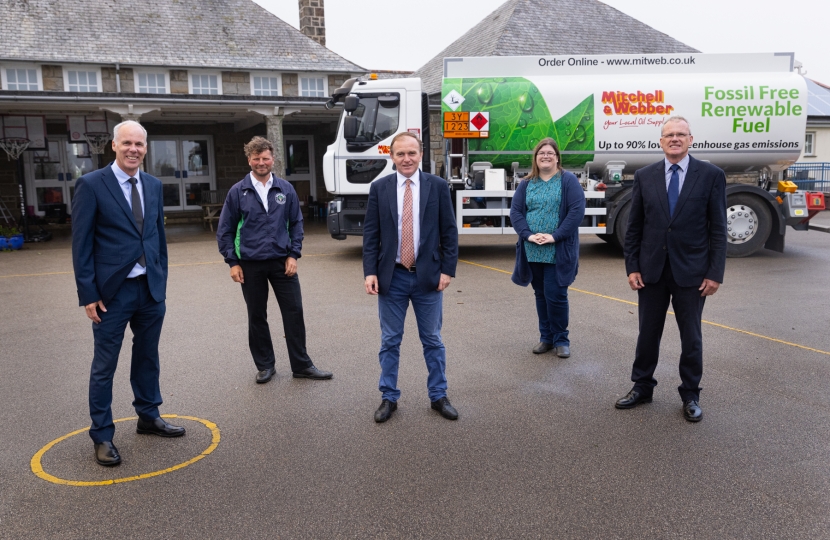
George Eustice, Member of Parliament for Camborne, Redruth and Hayle, recently visited Gwinear Primary School after its recent switch to an eco-friendly heating biofuel.
The school is the first in the country to trial the new renewable liquid fuel, known as Hydrotreated Vegetable Oil (HVO), replacing their traditional fossil fuel heating. This pioneering low-carbon fuel is produced from certified waste fats and oils, creating a greener, renewable resource unlike previous biofuels.
Redruth-based Mitchell & Webber, the South West’s local oil supplier, are the first company in the UK to have started these national trials and have seen huge success trialling the fuel in domestic since its launch last November.
Mr Eustice commented following the visit, “It could be a very important steppingstone on the way to net zero in rural areas like this. There are a lot of people still reliant on old oil-fired boilers and this is a more environmentally-friendly fuel."
Gwinear Headmaster Mr Lee Gardiner also added, “Since our school is such a historic building, it is extremely difficult to insulate using more modern techniques. Installing a completely new system would likely be disruptive to daily school life, and could possibly damage such an important structure. So when I saw the success of Mitchell & Webber’s HVO conversions in other settings across Cornwall, I knew I had found the perfect option for Gwinear!”
Robert Weedon explained, “As our local MP, we have kept Mr Eustice informed from the start of the trials as we were pleased that Cornwall is leading the way with this greener fuel, and were delighted to show him the process first-hand. We will be updating the Government on the success of the trials and hope they embrace this move away from fossil fuel to aid with the country’s carbon reductions and fuel poverty.”
“To hit our net zero targets, we have to try all sorts of things, we have to refit some off our homes so that we have boilers that are more environmentally-friendly and don’t use fossil fuels” added Mr Eustice. “In rural areas like this where people have got oil fired boilers we want to encourage them to try a more environmentally-friendly fuel, it’s a relatively simple process and so I think in some village communities where there’s a high number of oil fired boilers this could be quite an important technology.”

